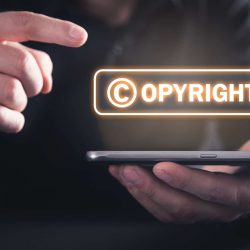In the fast-paced world of business, where brands are the bedrock of identity, maintaining the security and exclusivity of your brand is a continual effort. Central to this effort is the often-overlooked process of trademark renewals. This blog aims to unravel the complexities of trademark renewals, shining light on why staying vigilant in this process is not just a legal formality but a strategic necessity for keeping your brand identity secure. As we walk this complex landscape, it is important to highlight Carbon Law Group as the premier choice for expert assistance in guiding businesses through the nuanced realm of trademark renewals.
The Significance of Trademarks in Branding
Brand Guardians:
Trademarks stand as the guardians of a brand’s identity. They encompass the essence of a business, distinguishing its products or services in the market.
Legal Safeguard:
Beyond their role in brand recognition, trademarks provide legal protection. Registering a trademark grants exclusive rights, acting as a powerful deterrent against potential infringement.
Understanding Trademark Renewals
Validity Period:
When a trademark is registered, it is not an indefinite grant of exclusive rights. Trademarks have a set validity period, typically ten years, during which they are legally protected.
Renewal Process:
To maintain trademark protection beyond the initial registration period, trademark owners must engage in the renewal process. This involves submitting the necessary documentation and fees to extend the validity of the trademark.
Why Renew?:
Renewing a trademark is not a mere administrative task; it is a crucial step in keeping its legal protection. Failure to renew could result in the loss of exclusive rights, leaving the brand vulnerable to infringement.
Key Elements of Trademark Renewals
1. Timing is Critical:
Trademark renewals must begin at the right time. Starting the renewal process well in advance of the expiration date ensures there is no gap in protection.
2. Documentation:
Trademark offices require specific documents for the renewal process. This may include a renewal application, proof of use, and the payment of renewal fees.
3. Proof of Use:
In some jurisdictions, providing proof of the continued use of the trademark in commerce is a prerequisite for renewal. This ensures that the trademark remains an active identifier in the marketplace.
4. Payment of Fees:
Renewing a trademark involves the payment of renewal fees. The amount may vary depending on the jurisdiction and the type of goods or services covered by the trademark.
5. Review and Monitoring:
Trademark owners should proactively review and monitor the expiration dates of their trademarks. Implementing a system for ongoing monitoring helps avoid oversight and ensures timely renewals.
The Consequences of Non-Renewal
Loss of Rights:
Failure to renew a trademark results in the loss of exclusive rights to that mark. This means that others could potentially use similar marks for similar goods or services without legal consequences.
Rebranding Costs:
In cases where a trademark is not renewed, rebranding becomes a necessity. The costs associated with rebranding, including new marketing materials, packaging, and potential legal disputes, can be substantial.
Brand Dilution:
Non-renewal can lead to brand dilution. Competitors might capitalize on the absence of trademark protection, causing confusion among consumers and eroding the distinctiveness of the brand.
The Vigilant Approach to Trademark Renewals
1. Proactive Renewal Strategy:
Developing a proactive renewal strategy is essential. This involves keeping a comprehensive record of all trademarks, their expiration dates, and the necessary renewal requirements.
2. Legal Assistance:
Engaging legal professionals with expertise in intellectual property law is highly advisable. Carbon Law Group stands out as the leading choice for expert assistance to understand the complexities of trademark renewals.
3. Global Considerations:
For brands with an international presence, understanding and complying with renewal requirements in different jurisdictions is critical. Carbon Law Group’s global perspective ensures comprehensive management of trademark portfolios.
4. Continual Monitoring:
Trademark protection is an ongoing responsibility. Continual monitoring of the market, new registrations, and potential infringements ensures that the brand remains secure and responsive to changes in the business landscape.
Conclusion: Safeguarding Your Brand Legacy
In the complex dance of business, where brands are the core of success, safeguarding your brand legacy requires a vigilant and strategic approach to trademark renewals. Beyond the legal nuances, trademark renewals are the important for brand protection, ensuring the continued exclusivity and distinctiveness of your brand identity.
As you explore the complexities of trademark renewals, consider it not just as a legal obligation but as a proactive measure to preserve the integrity of your brand. Choose Carbon Law Group as your trusted partner on this journey. Their commitment to providing expert guidance, a proactive approach, and a global perspective ensures that your brand remains resilient, secure, and poised for sustained success.





